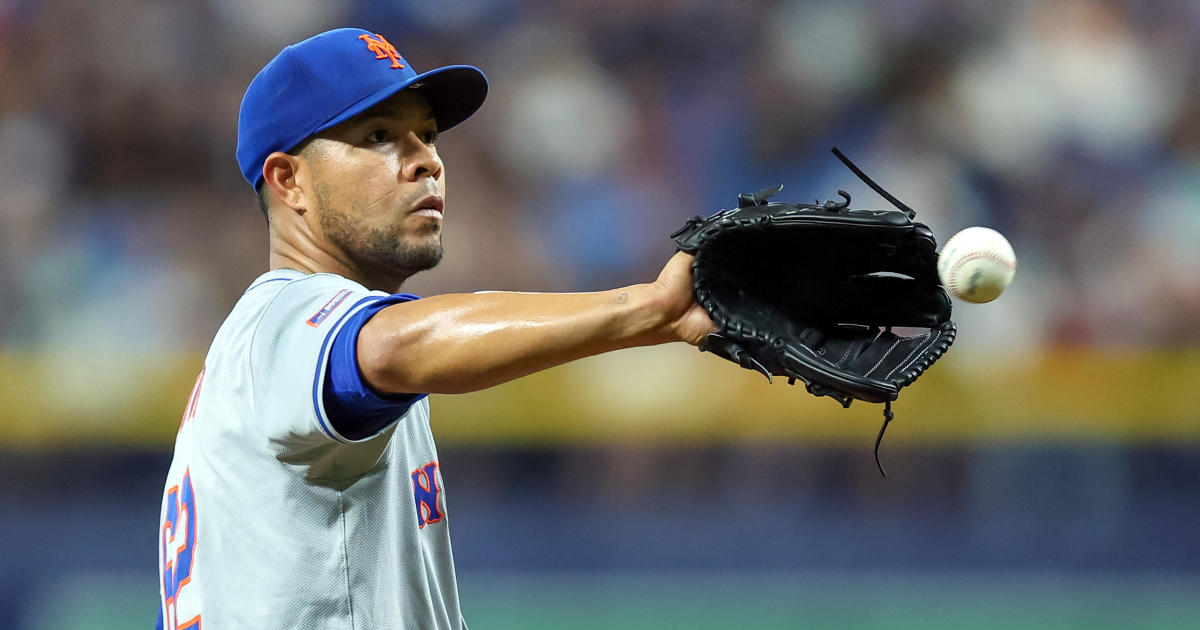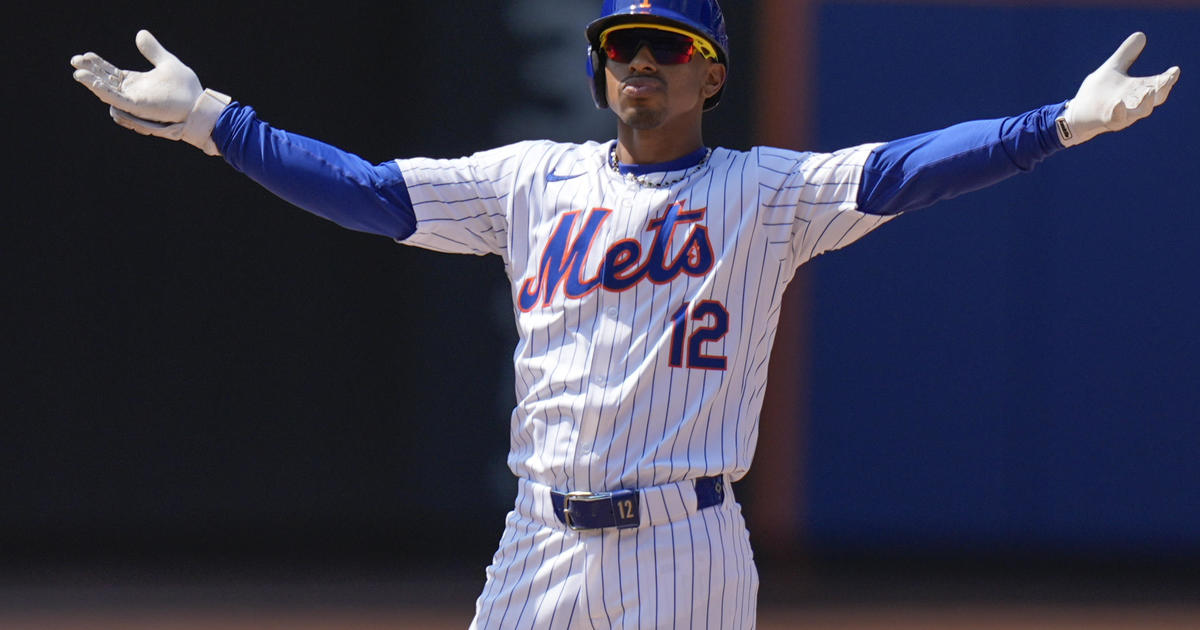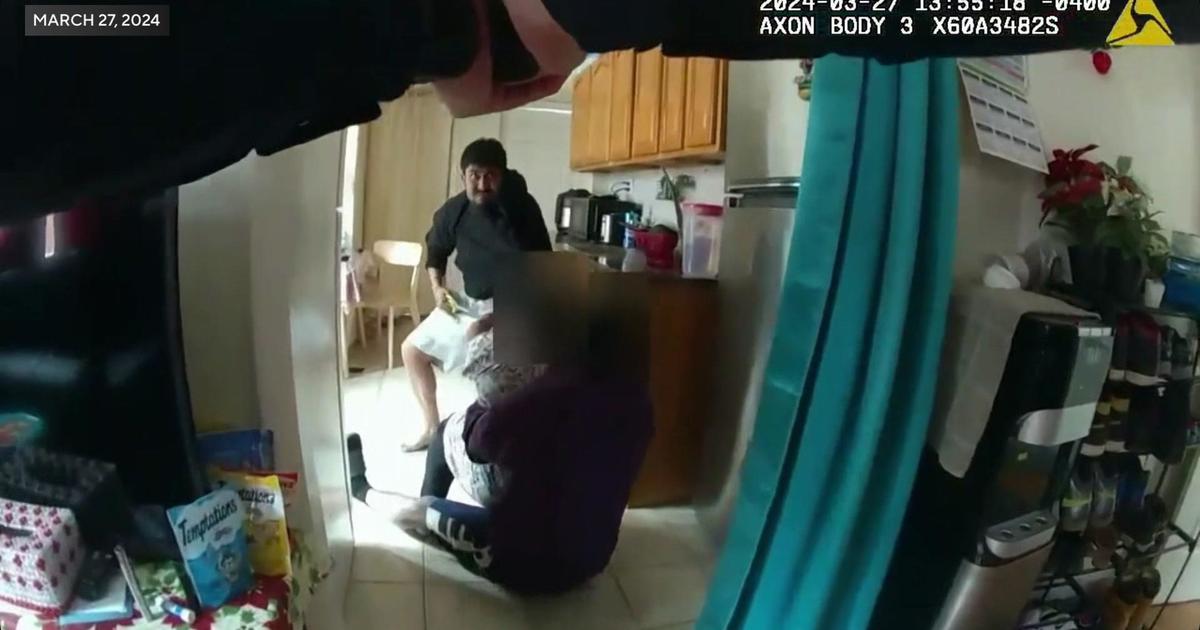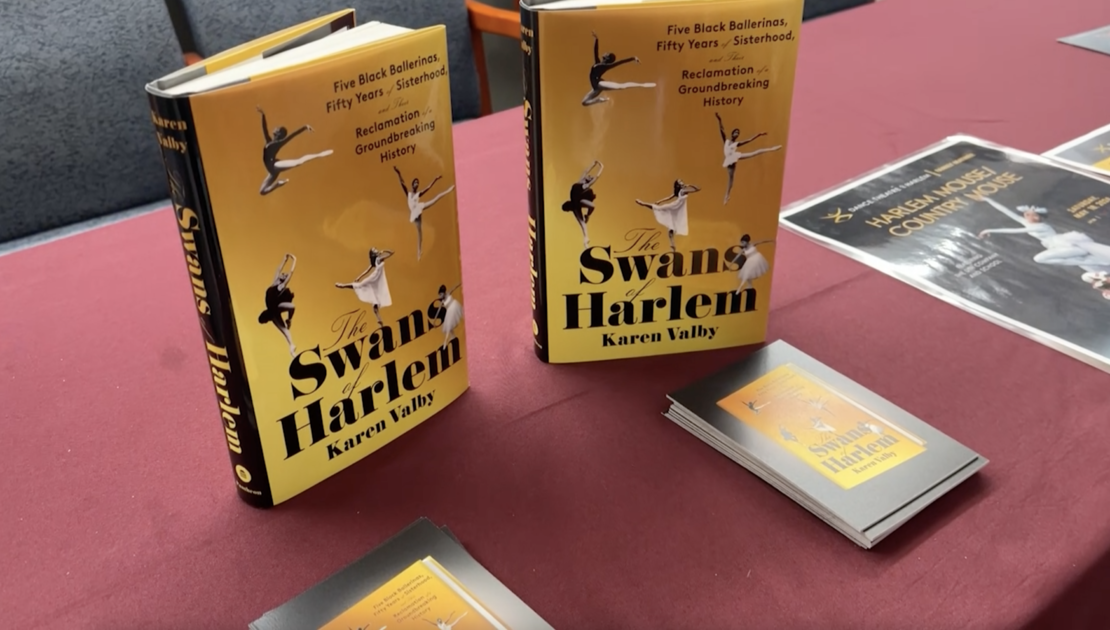Chris Carrino, Voice Of The Nets, Talks Of Life With Incurable MD
NEWARK, N.J. (WFAN/AP) — WFAN's radio voice of the Nets, Chris Carrino, has been living with a secret for almost two decades.
The 40-year-old, who has spent the past decade describing the franchise's run at NBA titles early in the decade to the misery of recent losing seasons, has done it with his body being gradually attacked by a form of muscular dystrophy.
Carrino has facioscapulohumeral dystrophy, one of nine types of MD, and this one has neither a treatment nor a cure.
"I have always been reluctant to talk about it because I never wanted to seem different," Carrino said. "I never wanted to be treated differently. It took me a while to talk to the people, even friends. It's something I felt that as long as I could get away with people not knowing, it would be fine."
Carrino is doing more than talking these days about his debilitating disease. He has launched the Chris Carrino Foundation for FSHD.
Call it the product of frustration. Carrino has not seen much progress in treating FSHD since he was diagnosed in the early 1990s. He doesn't believe much is being done now, at least compared to some other more recognizable forms of MD, like Lou Gehrig's disease.
Muscular Dystrophy Association spokesman Jim Brown there are about 21,500 to 40,000 people in the United States diagnosed with FSHD, which is slightly higher than the number of ALS patients (15,000 to 40,000).
MDA is currently spending $2.25 million funding 12 FSHD projects, Brown said, noting a recent study found the molecular cause of FSHD. The total does not include money being spent on other projects that will lead to advances in FSHD therapy development, he added.
"Maybe it was time for me to come forward and do something that could have an impact," said Carrino, adding he had always wanted to start an FSHD foundation, but wanted to do it after becoming a major player in the broadcast field.
With each passing year, however, he never felt he was big enough.
His 40th birthday and a long talk with his wife, Laura, convinced him now was the time to take on the genetic degenerative disease that usually strikes young adults by the age of 20. It affects the voluntary muscles in the face, shoulders and upper arms.
Growing up in Yonkers, N.Y., Carrino was active in sports, both on and off the field.
He had the broadcasting bug by the age of 9 or 10. He sat in front of his television, turned down the sound and did his own play-by-play on sports events. He played baseball and basketball, and eventually ran freshman track and played tennis at Iona Prep.
Going to college at Fordham, he started noticing changes. He was a step slower. Basketballs felt heavier, and tripping over a little crack in the pavement might cause his leg to give out and lead to a fall.
Carrino chalked it up to aging. When the problems continued, he had himself checked out.
There were tests and eventually a diagnosis, facioscapulohumeral dystrophy, which is caused by a missing piece of DNA on chromosome 4.
"To a person that age, that's out of left field," Carrino said. "Muscular dystrophy, you think of as the Jerry Lewis telethon and the poor little kids who have Duchenne's (dystrophy). But that's one of the many forms of MD and you find out there is something called FSHD, and you're diagnosed with it and you find out there is no cure, no treatment and nothing they can do."
Carrino avoided being around other people with the disease.
"I didn't want to see what I might be like in 10 years," he said.
So Carrino focused on his career while his body gradually lost strength, something that affected his self esteem because it left him needing help at times with simple things like putting a bag in an overhead bin.
Even work-related functions aren't so easy. Talking to a player on the bench before the game usually gives journalists insight. It can be troublesome for Carrino because the benches tend to be lower than a chair and it's difficult for him to get back on his feet.
His most frustrating incident was a game in Delaware, where he had to broadcast from the top of the stadium. There was no elevator and a producer had to help him up every step, and down after the game.
"I never went back there again," he said.
Carrino, who joined the Nets on a part-time basis in 1992, succeeded though. He worked as the backup radio announcer to Bob Papa for three years before getting the No. 1 job in 2001.
He wrapped up his 10th season on Wednesday night.
After that, his focus will be on the foundation, which is a collaboration with Jennifer Burgess of Massapequa Park, N.Y. She had an existing FSHD foundation and the two joined forces and used Carrino's name on the foundation.
"We feel like we have to take this in our own hands and try to do something about this," Carrino said. "We're in it for the long haul, planning events, trying to raise as much money as we can and get some progress going for us."
The Nets are stepping up to help Carrino. And he hopes some companies and friends lend their support.
"I want to be an example for kids who are going to be diagnosed," he said, "and who don't know that dreams they had as an 8-year-old can be accomplished, as long as its something of a physical nature."
Have encouraging words for Chris? Let them be heard in the comments below...
(TM and Copyright 2011 CBS Radio Inc. and its relevant subsidiaries. CBS RADIO and EYE Logo TM and Copyright 2011 CBS Broadcasting Inc. Used under license. All Rights Reserved. This material may not be published, broadcast, rewritten, or redistributed. The Associated Press contributed to this report.)



